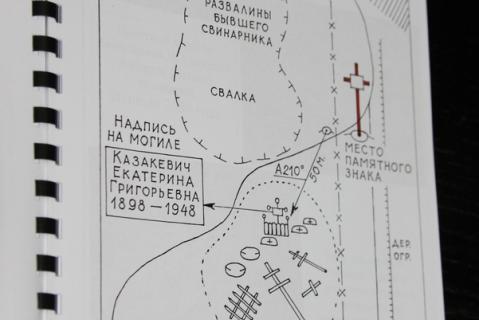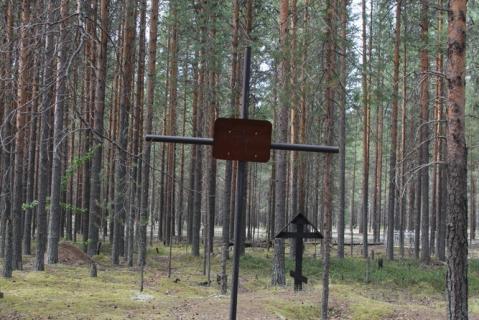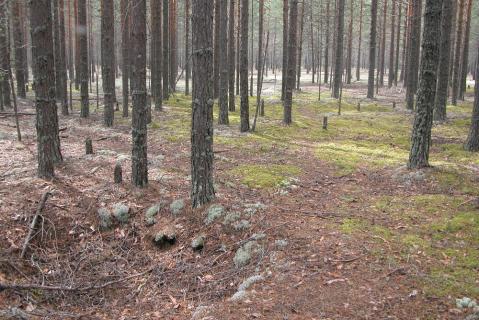Prisoners of Lokchimlag (then Ustvymlag) were buried next to the timber-processing factory from 1938 until the mid-1950s. Then the burial ground was abandoned. The numbers buried there have not been established.
In summer 2004 the graves were investigated by the Kortkeross Centre for Children’s Extracurricular Education, together with members of St Petersburg Memorial and the German cultural association of the Komi Republic. A plan of the burials was made and a metal cross was erected. On that visit the expedition members also partially cleared and tidied the burial ground.
In 2007 an individual sign was added in memory of K.A. Polekhov, a Lokchimlag prisoner who died in captivity.
The Memorial online database (2025) lists 129,473 victims in the Komi Republic. (See Nizhny Chov.)
Among them were over 60,000 deportees sent to the Republic: during collectivisation (19,934 in 1929-35), a massive influx in 1940 from occupied Polish territory (19,365) and more in the 1940s and 1950s (5,769). The database names almost 55,000 sent to the camps, where over 10,000 died: half were convicted in 1936-1940, including 7,977 who subsequently died in the camps.
Drawing on the Komi Book of Remembrance and other sources, the database lists 26 Lokchimlag inmates, one of whom was again imprisoned in 1937 and nine others who died in the camps between 1940 and 1943.
| State of burials | Area | Boundaries |
|---|---|---|
|
Rows of grave mounds, some subsidence, traces of trenches with common graves; a few crosses have survived
|
not determined
|
partially delineated
|
[ Original texts & hyperlinks ]
Materials of the local history expedition of Kortkeross Centre for Children’s Extracurricular Education (2004). – Archive of RIC Memorial (St Petersburg)
“A historic and ethnographic expedition to the Kortkeross district to gather materials about Russian Germans”, A People’s Book of Remembrance for the Russian Germans of Komi
“Adzherom settlement. Lokchimlag / Ustvymlag prisoners cemetery”, Virtual Museum of the Gulag [retrieved, 26 May 2022; no longer accessible]



